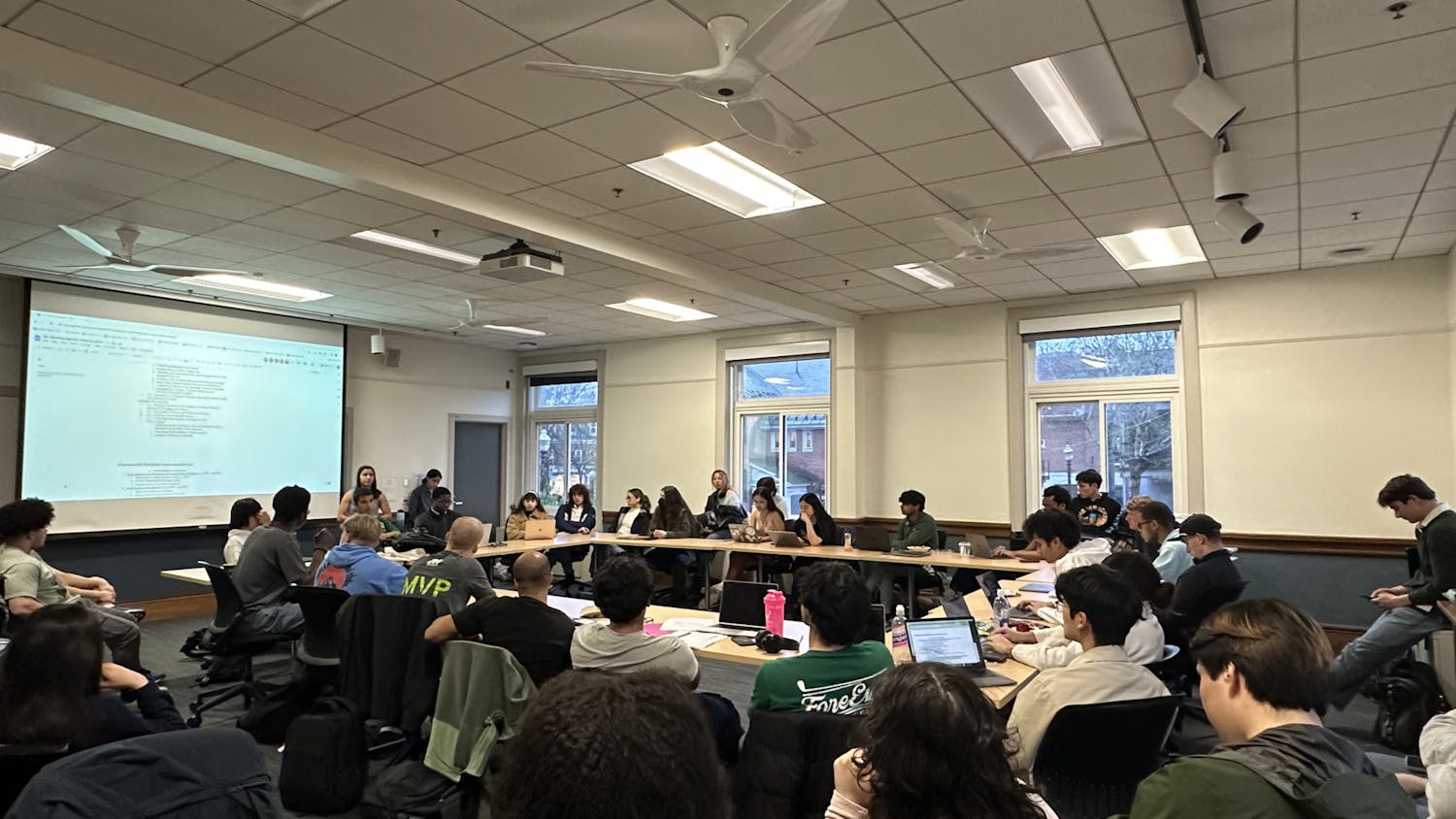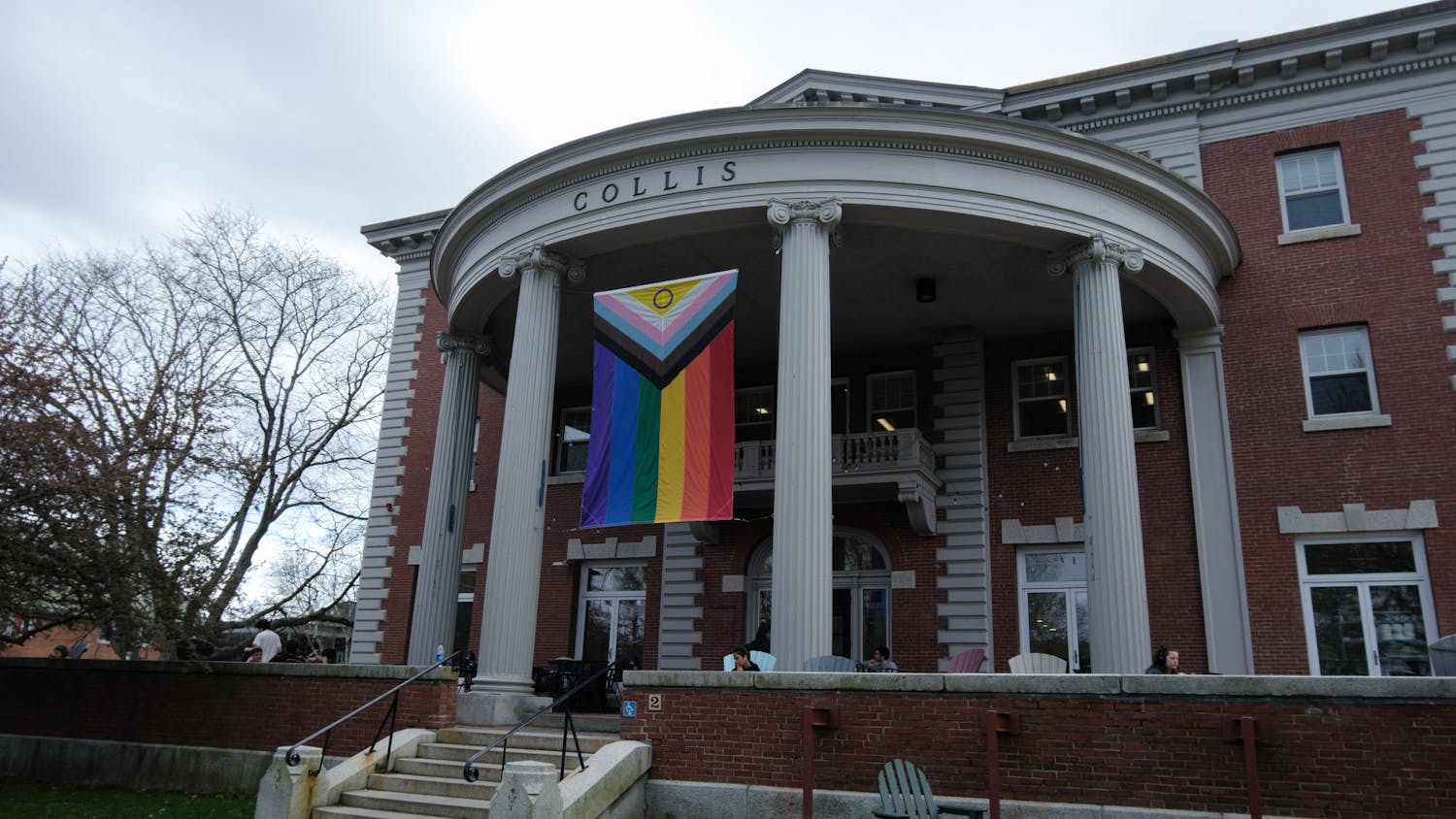Planned changes to co-ed, fraternity and sorority action plan requirements, currently in their third year of development, remain an ambiguous worry for Greek houses, with some CFS leaders claiming they are already stifled by bureaucratic mandates.
The Office of Residential Life, in partnership with the Center for Educational Outcomes, has been working since 2002 to develop an online program that will publicize comparative data for CFS organizations concerning the six principles of the CFS community: community service, scholarship, brotherhood/sisterhood, accountability, leadership and inclusivity.
The Center for Education Outcomes is a program affiliated with the C. Everett Koop Institute at Dartmouth Medical School that exists to "provide effective evaluative feedback to educational institutions, programs and individuals," according to its website.
Megan Johnson, the assistant director of CFS administration, said the long-term goal for the joint initiative is to create "a comparative analysis that will benefit the entire CFS community."
She denied claims that the project would create a grading system for houses and said that organizations will be neither scored nor ranked against each other.
"The program is not meant for the CFS community to be judged," Johnson said.
CFS action plans, which replaced the "minimum standards" that governed expectations for Greek houses, were one of the more prominent and influential changes mandated by the Student Life Initiative. The action plans are described by ORL as "a set of goals and activities that an organization must complete in order to fulfill the requirements of College recognition."
ORL refers to action plans as an "agreement" with CFS organizations. But Johnson insisted that action plans "merely assess where our organizations are," and that there should be no fear if houses don't accomplish all their goals.
"Realistically, groups aren't going to meet all their goals, and that's okay," Johnson said.
Some Greek leaders have criticized annual action plans. They argue that the filing process is an encumbrance that overwhelms houses without any real purpose. Johnson acknowledged that some students feel like action plans are "a lot of hoop jumping."
"I know it can feel very overwhelming and mundane," Johnson said.
Greek Leadership Council moderator Jonathan Lazarow '05 expressed a degree of concern with the new initiative to compare action plans.
"It may create a rivalry among houses, and that's not the healthiest thing for the Greek system," Lazarow said. "I think there are some benefits, however, to healthy comparison."
Interfraternity Council president David Grey '05 did not object to the intended implications of the developing comparative system.
"It's going to make organizations realize they have to do better," Grey said.
Cassie Barnhardt, the CEDO project manager, described the comparative analysis as operating on a community percentile system, whereby a Greek house would be able to compare itself to the rest of the CFS community. Barnhardt also said that houses will be able to compare their action plan progress to past years.
According to Barnhardt, the program should be operational during Spring term. She says she believes it will be an enormous boost for CFS organizations.
"I think this project has inherent potential to make organizations better," Barnhardt said. "I fundamentally believe that it's helping to lighten the load for organizations."
Lazarow agreed, but he still made reference to the substantial burden placed on CFS organizations.
"To my understanding it will simplify the process -- but we will still have to do a lot of things to remain functioning organizations."



